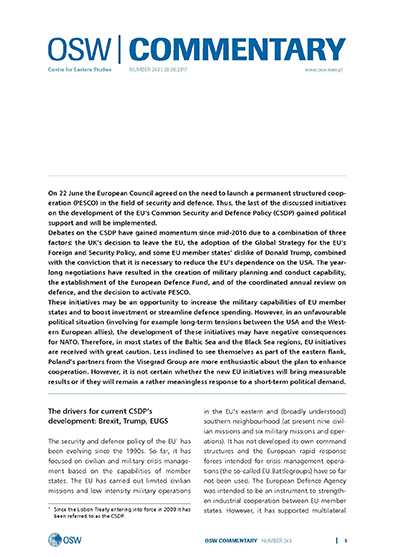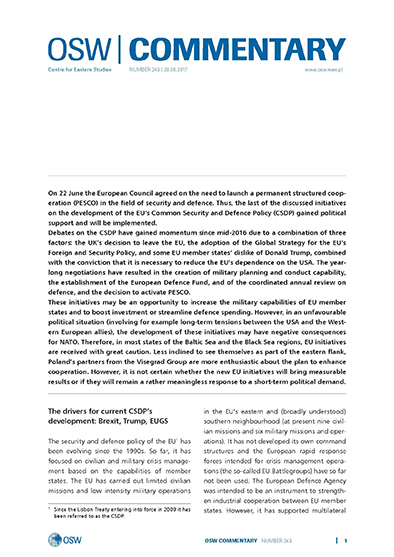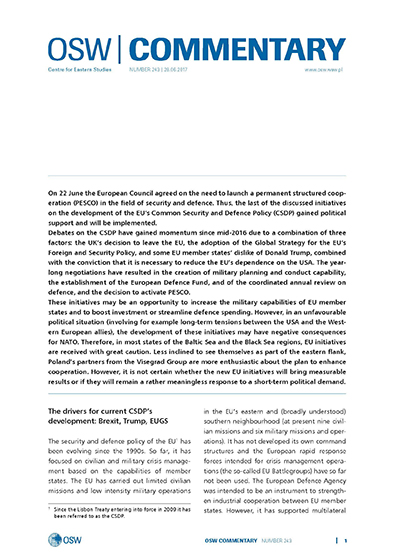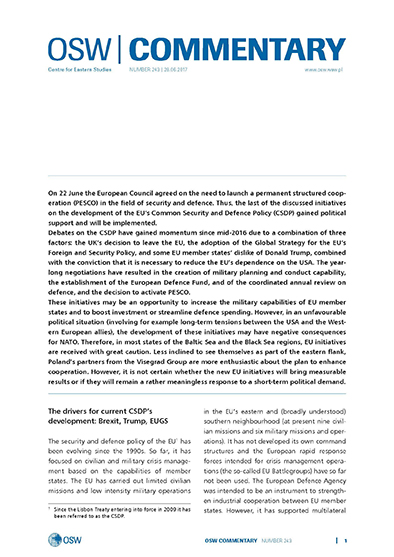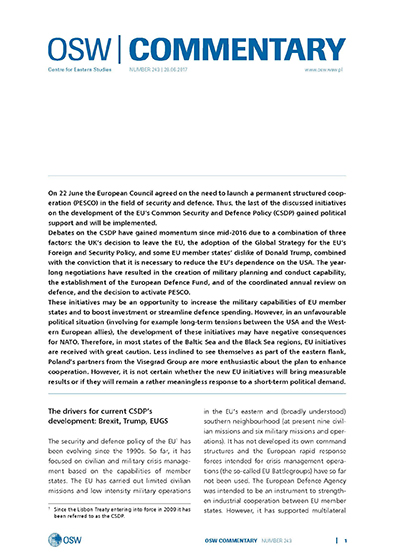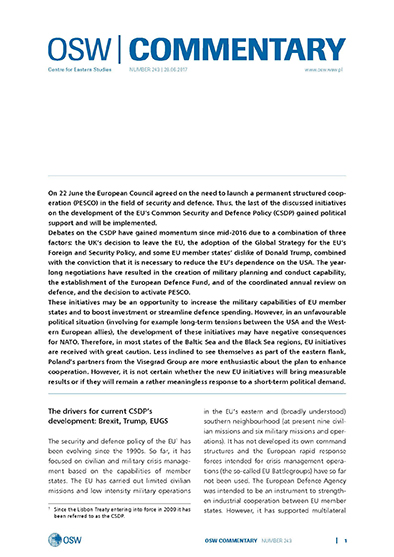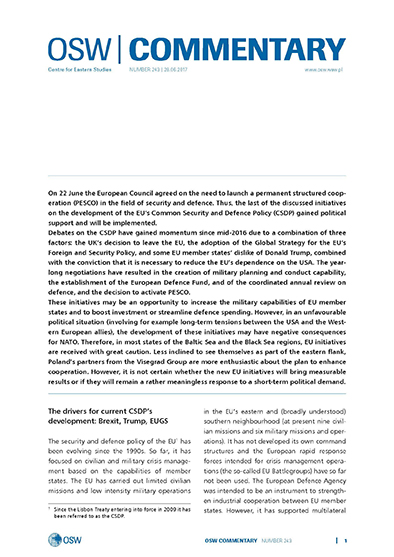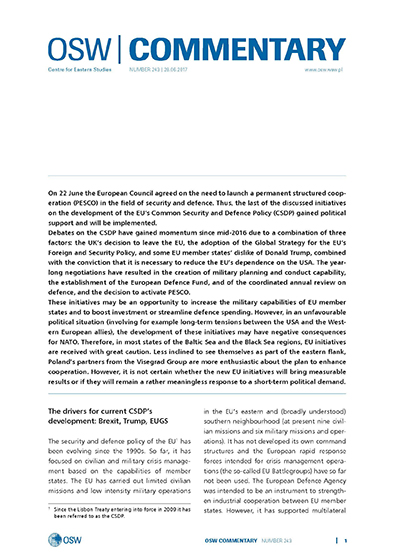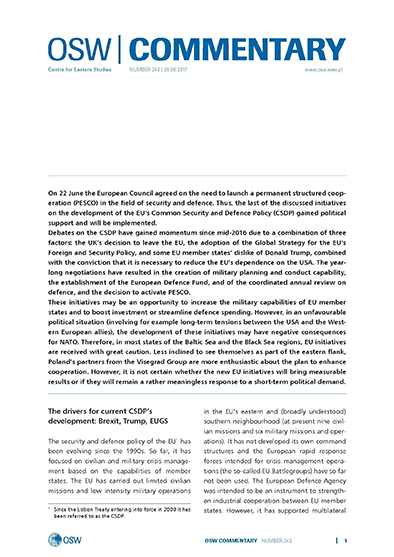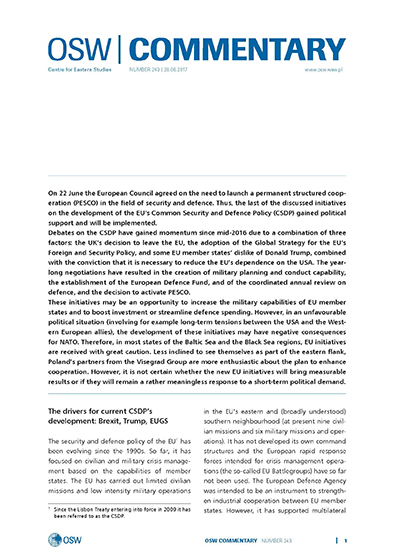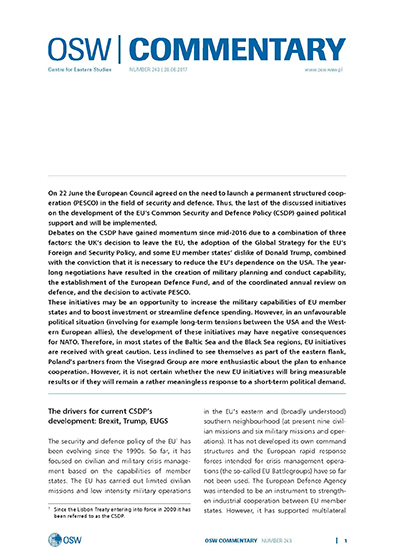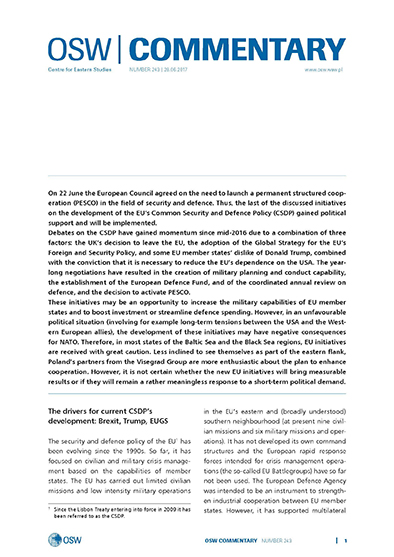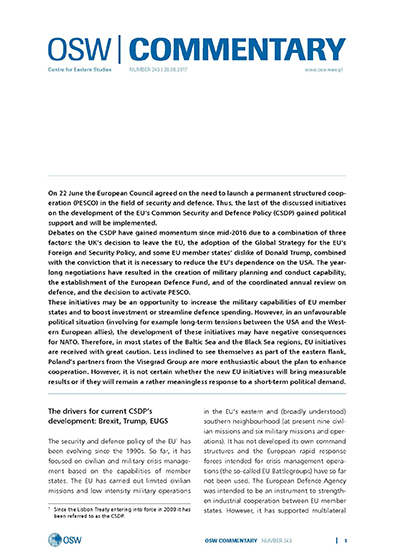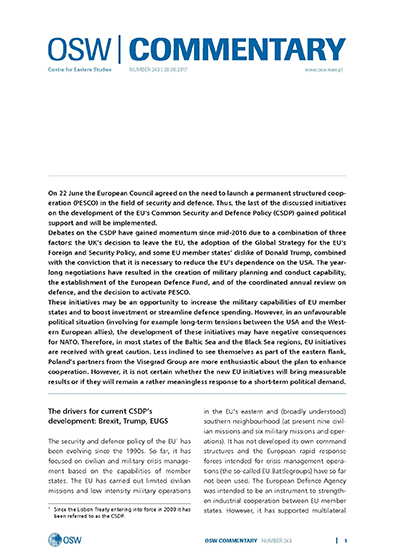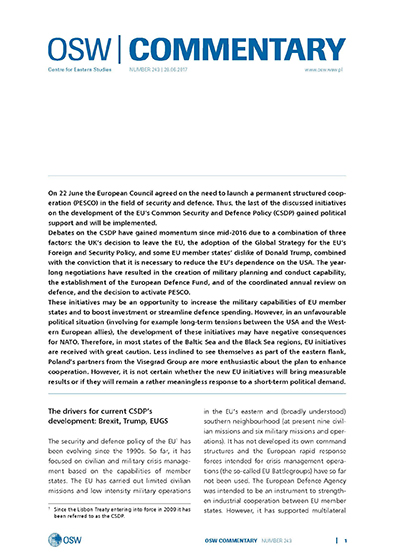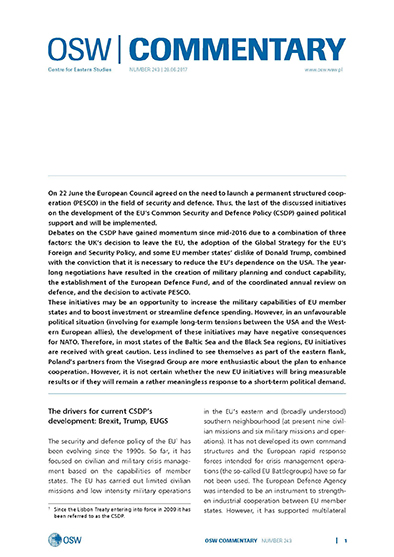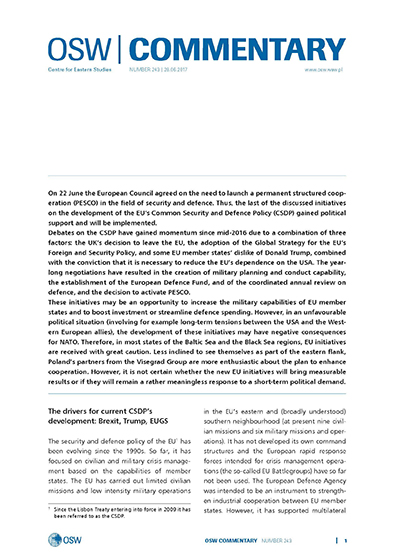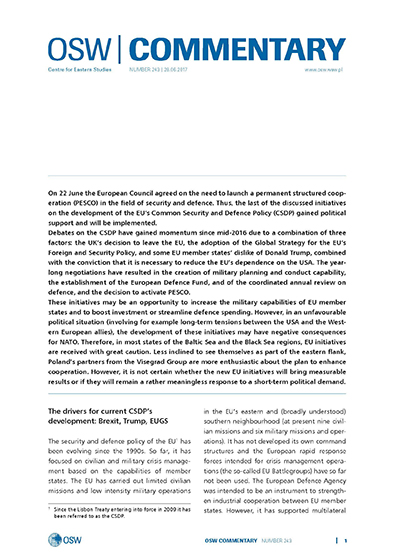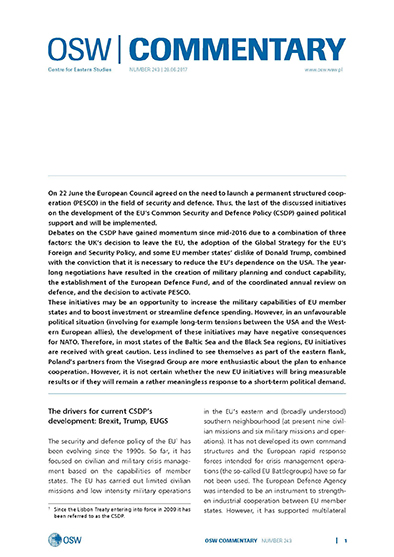
Niemcy w konflikcie rosyjsko-ukraińskim: misja polityczna czy humanitarna?
Since the beginning of the Russian-Ukrainian conflict, profound changes in Germany’s thinking about Russia, its political elite and foreign policy, can be observed. The trust most German politicians had in their former strategic partner has now lessened. At the same time, Germany has been particularly involved in the process of resolving the conflict, which was demonstrated by the intensive diplomatic actions it undertook. When these failed, Chancellor Angela Merkel did not hesitate to force through the introduction and maintenance of economic sanctions. At the same time, however, this evolution in Germany’s thinking about Russia has not translated into any change in the two basic assumptions of the German attitude towards a possible solution to the conflict. First, Germany supports the concept of ‘strategic patience’ in politics in the context of Russia’s aggression. Second, it is convinced that Europe is fated to cooperate with the Russian Federation, and Europe’s welfare and security are only possible with Russia as a partner in cooperation, not against it or without it. Therefore, in the immediate future no radical change in Germany’s policy as pursued so far should be expected. This provokes questions concerning not only the effectiveness of Berlin’s current actions, but also – in a broader sense – Germany’s ability to negotiate and achieve real, political solutions to the Russian-Ukrainian conflict, reaching beyond (another) ceasefire. The Minsk agreements of 12 February can be considered a success worthy of a humanitarian mission carried out in the hope of reducing the number of casualties. However, the political mission undertaken by Chancellor Merkel and Foreign Minister Steinmeier aimed at “ensuring Europe’s security order”1 has so far resulted in the sense of helplessness and frustration which have recently dominated Germany’s policy towards Russia.
More...
